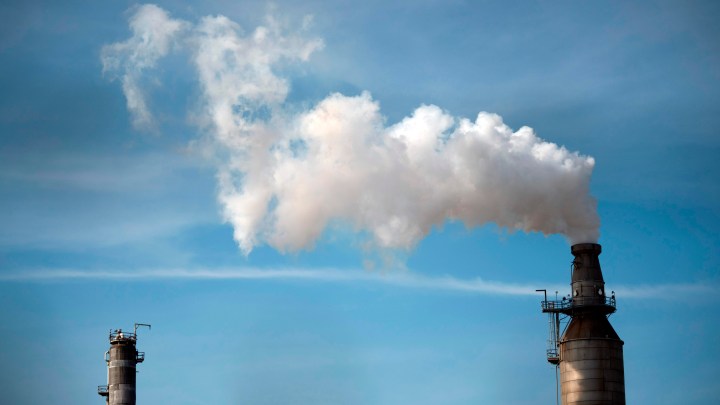
Oil supply may finally catch up with demand. But what about emissions?
Oil supply may finally catch up with demand. But what about emissions?

The emergence of the coronavirus omicron variant will slow oil use and allow supply to catch up to demand, the International Energy Agency said Tuesday in its monthly oil report.
Seems like good news — for consumers, at least. Oil markets won’t be as tight as they have been, which could mean cheaper gasoline and lower electricity bills.
But boosting the petroleum supply runs a bit counter to that clean energy transition everyone’s talking about. President Joe Biden’s been talking about ways to get gas prices down for a while now, even releasing some oil from the strategic petroleum reserve last month.
At the same time, he’s been promoting his clean energy agenda and saying we need to stop using so much oil and gas. Michael Lynch at the Energy Policy Research Foundation in Washington said that messaging is confusing.
“If you look up cognitive dissonance in the dictionary, you’ll see a picture of Joe Biden at COP26 in Glasgow saying, ‘Oh, by the way, OPEC, we want more oil to bring prices down,’ while pledging to reduce fossil fuel consumption in the long run,” he said.
This is the short-term versus long-term conundrum: We are still dependent on fossil fuels around the world, yet countries are pledging to phase them out. We have to recognize both realities, said Melissa Lott, director of research at Columbia University’s Center on Global Energy Policy.
“We need to think about how we’re setting up our policies and our technologies and our systems to reach net-zero as quickly as possible,” she said. “At the same time, we can’t have skyrocketing bills, we can’t have people struggling to be able to fill their tanks, to be able to keep their homes warm.”
Yet another conundrum: cheap and reliable energy versus the immediate need to curb emissions. Caught in the middle of this are consumers — and American energy companies.
Robert Johnston, managing director for Eurasia Group’s energy, climate and resources practice, said the energy industry is divided on the best approach.
“Do we keep producing while trying to decarbonize the barrels?” he said. “Or, like some of the European companies, do we think about starting to invest in sort of nonfossil fuel businesses like, you know, renewable electricity, green hydrogen or biofuels?”
There’s currently a disconnect, Johnston said, between what the CEOs of those big oil companies think Washington is telling them and the message the White House thinks it’s delivering.
There’s a lot happening in the world. Through it all, Marketplace is here for you.
You rely on Marketplace to break down the world’s events and tell you how it affects you in a fact-based, approachable way. We rely on your financial support to keep making that possible.
Your donation today powers the independent journalism that you rely on. For just $5/month, you can help sustain Marketplace so we can keep reporting on the things that matter to you.

















